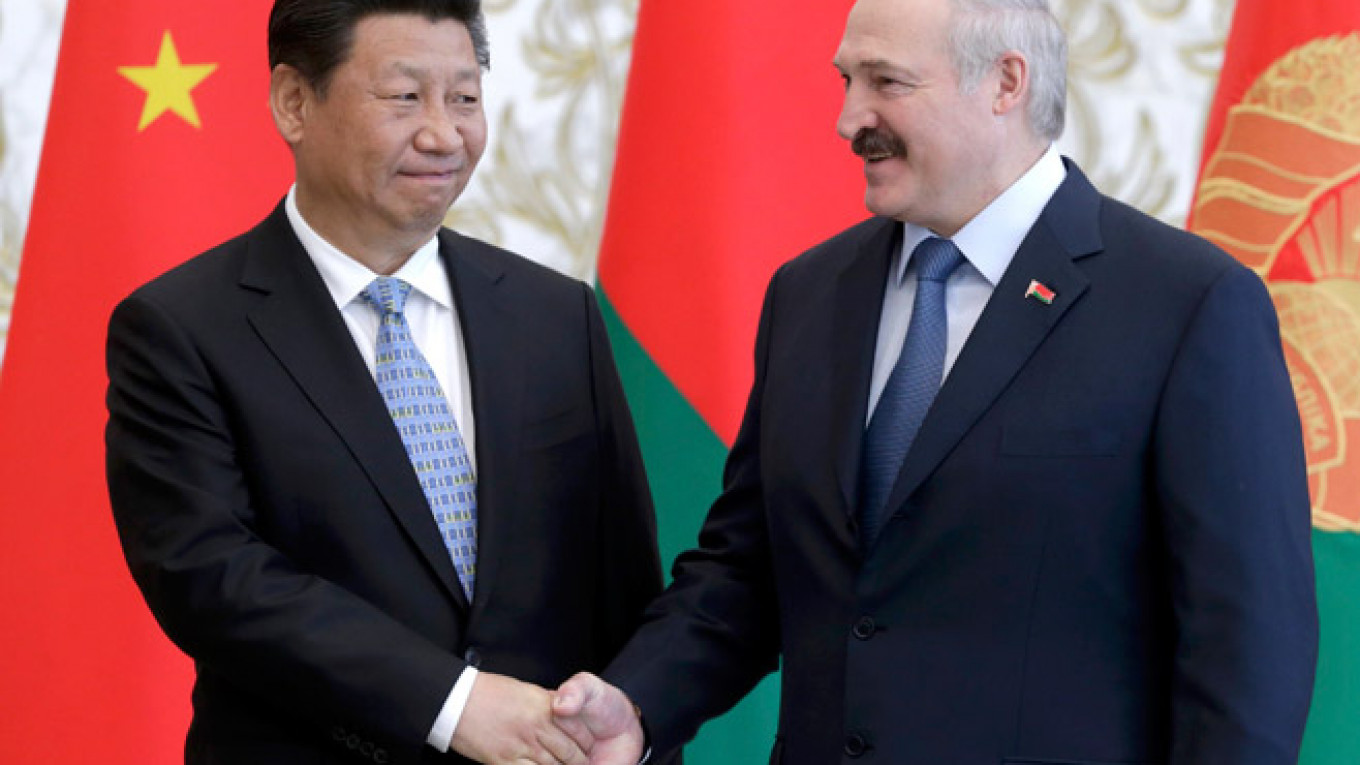Belarus' economy, slammed by the Russian market's recession and ruble crisis, fell 2 percent in the first three months of the year, according to a report released Tuesday by Moscow's Higher School of Economics (HSE).
In the same period, registered unemployment in Belarus rose by 73 percent and real wages fell by 3 percent, the report said. Industrial production shrank by 2 percent.
Belarus has struggled to come up with innovative measures to stabilize its Russia-dependent economy in the face of an expected recession across the border this year.
In a move hearkening back to the Soviet Union, Belarussian President Alexander Lukashenko in April introduced a "social parasite" law, which levies a $5,000 fine on individuals out of work for six months or more.
The report said that the law, meant to help the Belarussian budget compensate for revenue losses caused by unemployment, is a telling sign that the state is unable to handle the crisis.
As Russia steps back from providing assistance to Belarus, China has gradually taken its place as Minsk's new patron. In May, China extended $7 billion in credit to Belarussian banks and companies, news agency Reuters reported.
This is not the first time China has come to Belarus' rescue. China also provided Belarus with financial support in 2011-12, after the severe devaluation of Belarussian ruble. However, further cooperation began to fade under the influence of Russia, according to the HSE report.
A Message from The Moscow Times:
Dear readers,
We are facing unprecedented challenges. Russia's Prosecutor General's Office has designated The Moscow Times as an "undesirable" organization, criminalizing our work and putting our staff at risk of prosecution. This follows our earlier unjust labeling as a "foreign agent."
These actions are direct attempts to silence independent journalism in Russia. The authorities claim our work "discredits the decisions of the Russian leadership." We see things differently: we strive to provide accurate, unbiased reporting on Russia.
We, the journalists of The Moscow Times, refuse to be silenced. But to continue our work, we need your help.
Your support, no matter how small, makes a world of difference. If you can, please support us monthly starting from just $2. It's quick to set up, and every contribution makes a significant impact.
By supporting The Moscow Times, you're defending open, independent journalism in the face of repression. Thank you for standing with us.
Remind me later.






